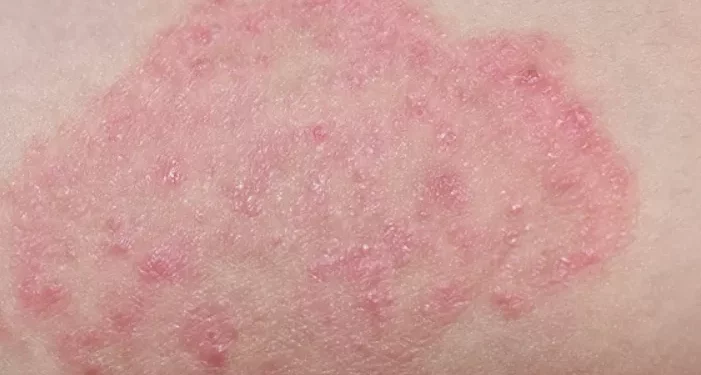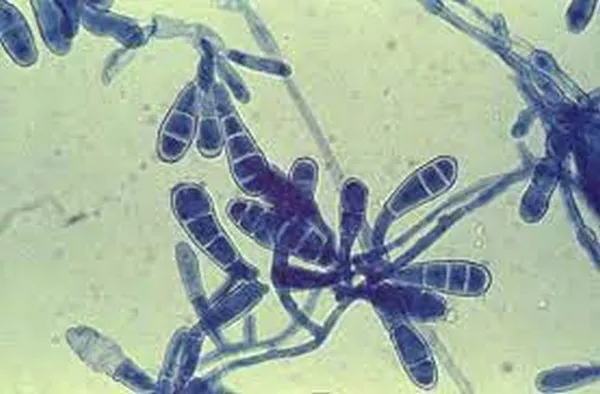Tinea corporis, also known as ringworm, is a fungal infection that affects the skin, causing circular, red, and itchy rashes. It can occur on any part of the body, but it commonly affects areas such as the arms, legs, and torso. While it is highly contagious, tinea corporis is treatable, and most people recover with the right treatment. However, the duration of the infection can vary depending on various factors. In this article, we will explore how long tinea corporis lasts, factors that affect its duration, and how to treat and manage it effectively.
What is Tinea Corporis?
Tinea corporis is a skin infection caused by fungi, primarily dermatophytes. These fungi thrive in warm, moist environments and infect the outer layers of the skin. The infection typically presents as red, scaly patches that often appear in a ring-like shape, hence the name “ringworm.” The rash is often itchy, and the edges of the infection may be more pronounced, while the center may appear clearer as the infection progresses. The condition can spread through direct skin-to-skin contact or by touching contaminated surfaces, such as towels, bedding, or clothing.
The Typical Duration of Tinea Corporis
The length of time tinea corporis lasts depends on the effectiveness of treatment, the severity of the infection, and the individual’s immune system. In most cases, with appropriate treatment, tinea corporis will begin to improve within a few days and may resolve completely within 2 to 4 weeks. However, if left untreated or if the infection is particularly severe, it could last longer.
Factors That Affect the Duration of Tinea Corporis
Several factors influence how long tinea corporis lasts. These factors can either speed up or slow down the healing process.
1. Type of Treatment
One of the most significant factors affecting the duration of tinea corporis is the type of treatment used. Over-the-counter antifungal creams, sprays, or powders are effective in treating mild cases of ringworm. If the infection is more severe or widespread, prescription-strength antifungal medications may be necessary. In some cases, oral antifungal medications may be recommended, especially if the infection is persistent or if it affects larger areas of the body.
It is essential to follow the prescribed treatment regimen consistently and completely. Even if the symptoms start to improve, stopping the treatment prematurely can result in a relapse of the infection, prolonging the overall duration.
2. Severity of the Infection
The severity of the infection also plays a role in how long it will take to heal. Mild cases of tinea corporis, where the infection is limited to a small area of the skin, tend to heal faster with appropriate treatment. On the other hand, more extensive infections that cover larger areas of the body may take longer to resolve. Additionally, if the infection is deep or involves the hair follicles, it may require a longer treatment period.
3. Immune System Health
An individual’s immune system can impact how quickly the body can fight off the infection. People with weakened immune systems, such as those with HIV/AIDS or those taking immunosuppressive medications, may experience a prolonged duration of the infection. A strong immune system, on the other hand, can help the body clear the infection more quickly.
4. Hygiene and Skin Care
Proper hygiene and skin care can help reduce the duration of tinea corporis. Keeping the affected area clean and dry is crucial for preventing the fungus from spreading or worsening. Fungi thrive in warm and moist environments, so ensuring that the skin is kept dry can help speed up healing. Regularly changing clothing and bedding, avoiding tight-fitting clothes, and using antifungal powders can also help reduce the duration of the infection.
5. Reinfection
Reinfection can prolong the duration of tinea corporis. If the person continues to be exposed to fungi, such as by sharing personal items or coming into contact with contaminated environments, the infection may return. Reinfection can also occur if the initial treatment was not completed properly or if the person discontinued the treatment too early.
How to Treat Tinea Corporis Effectively
Treating tinea corporis effectively is key to reducing its duration and preventing further complications. There are several treatment options available, and it is essential to follow the appropriate regimen for the best results.
1. Over-the-Counter Antifungal Creams
For mild cases of tinea corporis, over-the-counter antifungal creams or ointments are often the first line of treatment. These creams contain active ingredients such as clotrimazole, miconazole, or terbinafine, which work to kill the fungus causing the infection. These medications are typically applied directly to the affected area once or twice a day for 2 to 4 weeks. Even if the rash begins to improve, it is essential to continue using the cream for the full duration to ensure the infection is completely eradicated.
2. Prescription Antifungal Medications
In cases where over-the-counter treatments are not effective, or if the infection is widespread, a healthcare provider may prescribe stronger antifungal medications. These may include topical treatments with higher concentrations of antifungal agents or oral medications, such as terbinafine or itraconazole. Oral medications are typically used for more severe or persistent cases of tinea corporis and can help clear the infection from the inside out.
3. Keeping the Skin Dry and Clean
Maintaining good hygiene is crucial during the treatment process. Keeping the affected area clean and dry helps prevent the fungus from spreading. Wash the skin gently with soap and water, then dry it thoroughly before applying any antifungal treatment. Wearing loose-fitting clothes and changing socks and clothing regularly can help reduce moisture buildup, which can promote fungal growth.
4. Avoiding Scratching
Although tinea corporis can be extremely itchy, it is important to avoid scratching the affected area. Scratching can damage the skin, leading to secondary bacterial infections and potentially increasing the duration of the fungal infection. Using anti-itch creams or cool compresses can help relieve the itching while the infection heals.
5. Cleaning Personal Items and Environment
To prevent reinfection, it is important to clean personal items, such as towels, sheets, and clothing, thoroughly. The fungus that causes tinea corporis can survive on surfaces for extended periods, so regular washing with hot water and detergent is essential. It may also help to disinfect common surfaces, such as bathroom counters or gym equipment, to reduce the risk of contamination.
How Long Does It Take to See Improvement?
With proper treatment, most people begin to see improvement within a few days. The rash may start to fade, and the itching will usually decrease. However, it is important to continue treatment for the full duration, even if the symptoms seem to improve, to ensure the infection is completely cleared. If you do not see improvement after 2 weeks of treatment, or if the infection worsens, it is important to consult a healthcare provider for further evaluation and a possible change in treatment.
When Should You Seek Medical Attention?
In most cases, tinea corporis can be treated effectively with over-the-counter antifungal treatments. However, if the infection persists despite proper treatment, or if it is accompanied by symptoms such as fever, swelling, or pus, it is important to seek medical attention. A healthcare provider may recommend stronger medications or perform tests to rule out other potential skin conditions.
Conclusion
Tinea corporis, or ringworm, is a common fungal infection that can affect anyone, but with the right treatment, it typically clears up within 2 to 4 weeks. The duration of the infection depends on various factors, including the severity of the infection, the type of treatment used, and the health of the individual’s immune system. By following a consistent treatment plan and practicing good hygiene, you can help reduce the duration of tinea corporis and prevent reinfection. If the infection does not improve or worsens, it is important to consult a healthcare provider for further guidance.
Related topics



























